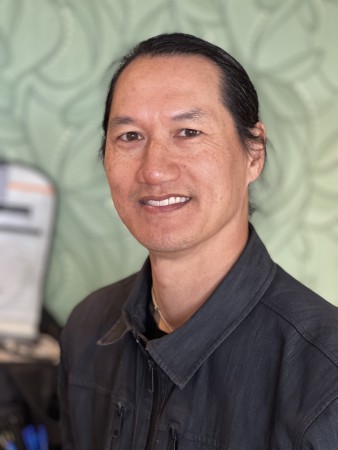
Minister proposes employee sharing and employer accreditation for tourism jobs
New Tourism Minister Peeni Henare was in Queenstown this morning as he unveiled a government roadmap to strengthen the tourism workforce.
Included in the plan are an employee-sharing pilot and a voluntary accreditation scheme that identifies tourism and hospitality businesses doing right by their staff.
Tourism Minister Peeni Henare says working in tourism is too often an unstable, low paid option, and the Better Work Action Plan will help to address these ongoing challenges.
“We want to turn around the negative perception – and reality for some - that working in tourism doesn’t pay well and the work can be unstable.
“The action plan will help to improve conditions so that tourism is a job of choice that is fulfilling and desirable for people here and those coming from abroad.”
The government is keen to test whether employee-sharing is one way of addressing the unstable and seasonal elements of the workforce.
The idea’s intriguing for local iFly owner Matt Wong.

iFly owner Matt Wong says tourism businesses that pay low in Queenstown Lakes will not get staff.
Queenstown is traditionally a seasonal location to work – it’s pretty normal for workers to switch from a snow-related job to something else in adventure tourism or hospitality, so any legislative framework aimed at helping to ease those transitions will be a good thing both for businesses and their employees, he says.
“To actually have it legislated where it’s doable and you can share resources and still keep them employed and retained in the business would be fantastic.”
Ziptrek’s Trent Yeo has been one of the industry representatives feeding into the development of the plan.
He says managing a seasonal workforce is something tourism businesses in Queenstown Lakes are grappling.
“It’s definitely something that we all talk about all the time.”
Passing his own employees on to other jobs is something he’s does “pretty regularly”, he says.
“But it’s got to move from what some people are doing some of the time to what more people are doing most of the time.”
He’d welcome “formalisation” of that process and any opportunity to remove barriers to it, he says.
“There’s definitely some employer tax and paperwork stuff that becomes a hassle, which I think they’re going to try and get through, through this process.
“We want people to comply with laws and look after people…but also you have to make it as easy as possible so the structures that exist don’t limit the possibility of human work, but actually increase the possibility of human work.”
It fits with what workers want too – he says survey results show flexibility is a key draw for many who make up the tourism workforce.

Ziptrek's Trent Yeo welcomes government help to manage workforce seasonality better.
Both Mr Yeo and Mr Wong agree when it comes to pay and conditions plenty of employers in the district have picked up their game in a post-pandemic world.
They’ve had to, to attract and retain talent in a tight labour market, and the days of paying minimum wage in the industry are, generally, long gone, in this neck of the woods anyway.
"That's a broken record from three years ago. We've moved on from that. If you pay low, you're not going to get staff. He (the tourism minister) needs to get off that bandwagon and actually look at the industry with feet on the ground and go 'hey, actually you know what, there's some bloody good employers in this industry and they're playing bloody well'."
Good employers aren't considering the minimum wage; they aren't considering a living wage; they're considering a "living wage for Queenstown", he says.
However, while Mr Wong says the minister needs to change his perception on this one, Mr Yeo suggests industry players doing good in Queenstown may not necessarily be a reflection of employers across the motu.
Regardless, they’re both welcoming the planned Tourism and Hospitality Accord, which will provide a way to identify those businesses in tourism and hospitality who are treating their staff well.
“What we’re trying to do is just remove bad behaviour,” Mr Yeo says.
And, it’s not just about wages, it’s about general work conditions and “complying with baseline stuff” like holiday pay too, he says.
Mr Wong says he’s waiting to see the “nitty gritty and the nuts and bolts” of how it will be established and the criteria being measured.
“In my own opinion, I don’t need accreditation to say that I’m a good employer – I need my staff to tell me in their staff satisfaction surveys, and the fact that we don’t have a big churn or can attract staff well.
“To have a government overlay on top of that is not necessarily a bad thing but it’s going to be very tricky to make sure that it’s robust enough to be authentic and people aren’t slipping through the cracks to get a gold star accreditation when they shouldn’t.”
Tourism Industry Aotearoa chair Gráinne Troute is backing the government’s new Better Work Action Plan calling it "both practical and transformational”.
She's helped chair industry representation on it.
The solutions aim to create a more regenerative, high value and resilient industry that all New Zealanders can be proud of, she says.
The Better Work Action Plan is the first phase of the Tourism Industry Transformation Plan, announced in 2021.
Developing it is a collaboration between industry, unions, Maori and government.
"New Zealand continues to be one of the world's top tourism destinations, and with the borders open, international visitors are returning. We need to support our sector to rebuild a more resilient future that leaves people, communities, and the environment better off than before," Minister Henare says.
Main image: Ziptrek






























